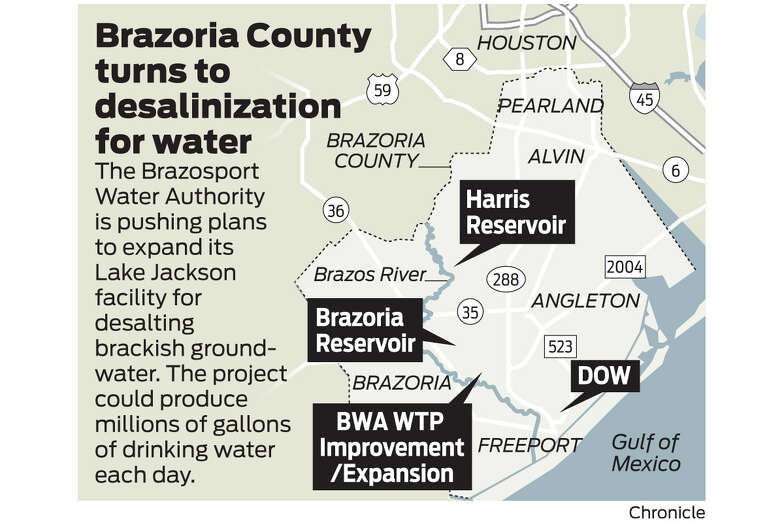Note: From time to time, I solicit guest posts from various individuals on different topics. While I like to think I know a little something about a lot of things, I’m fortunate to be acquainted with a number of people who know a whole lot about certain topics, and who are willing to share some of that knowledge here.
Houston has significantly improved its recycling rate by expanding single-stream recycling, or the “big, green bins.” While the smaller, 18-gallon green boxes only had a participation rate of 22%, the larger recycling bins are up to 62% recycling participation since the larger bins are a better, more convenient design and they accept more materials.
Following successful models of cities like Denver, Los Angeles, Toronto, Dallas and Austin, Houston can improve its recycling rate beyond our current 6% or next year’s expected 12% by implementing education programs and incentives.

It all starts with consistent programs and education
First and foremost, all homes serviced by the City’s waste services need to have the same, consistent recycling program. Right now, some neighborhoods have dual stream while others have single-stream; some neighborhoods recycle glass separately and others do not. Inconsistent recycling services unnecessarily complicates City-wide public education and messaging, makes it more difficult to teach communities how to recycle and can cause people to give up on recycling properly. Consistent, single-stream recycling where all recyclables go in one container separate from trash really does simplify the process.
Next, we need consistent promotion and education to explain what items go in the recycling bins. Recycling messages may take a plethora of forms: bus signs, billboards, bill inserts, social media, speaking in neighborhood meetings and even in schools. Speaking to elementary school students is one of the most effective recycling education methods, since kids are great at teaching their parents how to recycle. This is especially true in multi-lingual homes or in homes where parents have not recycled previously. Teaching youngsters responsible, environmentally conscious behaviors such as recycling will hopefully also encourage them to be sensitive to the environment throughout their lives and future careers.

Broadly speaking, recycling media and messaging should be tailored to reach populations with different interests and values. Environmentalists are going to be compelled when you say it is good for the environment, but that’s not everybody—maybe not even most people in Houston. The City may explain how recycling creates jobs, saves tax dollars in the long run and teaches resource conservation to connect with one group; explaining how recycling means less dumping on environmental justice communities connects to another. We live in an era where mass communication can be tailored to very specific audiences. Goodness knows I saw Mayor Annise Parker’s campaign ads all over my internet; surely the City can promote recycling that effectively.
At the individual or neighborhood level, stickers on recycling bins and door-to-door communication have been proven highly effective in cities like San Francisco, where they divert 80% of waste from landfills. Some cities have also appointed neighborhood “block leaders” where neighbors encourage each other to recycle properly and help distribute recycling instructions and media. Council member Bradford once suggested that the City create some kind of recycling competition between neighborhoods and invent rewards for neighborhoods that recycle the most.
Door-to-door visits may also target areas with low recycling participation or high contamination. City employees may use stickers and notes on recycling bins to inform people what they are doing right or what needs improvement. Door-to-door visitors are very effective since they can take some time to explain what items are recyclable in the City’s recycling program, what isn’t, why it is important and make sure residents understand the incentives in place.
Incentives help to improve recycling rates
All waste services have a cost, but not all communities have waste fees or a designated monthly charge to fund trash, compost and recycling services. Some cities pay for waste disposal from general funds and are able to achieve high recycling rates through consistence services and promotion. Toronto, for example, has no waste fee and boasts 49% diversion from landfills—about 3 times that of Houston. Part of Toronto’s success is likely due to their curbside food waste collection and a commitment to strong education programs. Monthly charge-based incentives do create powerful economic incentives to increase recycling, however, and have proven successful in other cities.

Unit-based or “SMaRT (Save Money and Reduce Trash)” pricing allows customers to pay less if they recycle more. While some communities may determine the amount through metering, where each load of trash set out at the curb is weighed, this is unnecessary and often unpopular. An easier solution is to offer different sized trash cans—24 gallon, 36 gallon, 64 gallon and 96 gallon—and to charge customers more for bigger cans, incentivizing waste reduction as well as recycling. In general unit-based pricing can reduce waste disposal by up to 50% and increase recycling by up to 40%. EPA estimates that PAYT policies in 2006—which covered only 25% of the US population—diverted about 6.5 million tons of waste which would have otherwise been thrown away. They estimated then that the policies reduced disposal by an average of 17%.
Mandatory curbside recycling and composting programs are controversial, but they are also very effective at incentivizing participation. Essentially these are ordinances which say that the City will not collect any waste if either recycling or composting are not also present, or if there is recycling or composting present in the waste. Customers are still free to self-haul their discards to a landfill and pay gate fees there, but City collection crews will not throw valuable commodities into the landfill themselves. Such policies are best implemented after all other incentives, education and programs have gone into effect to capture the last chunks of material after recycling, composting and other programs have become widely accepted.
Creating a City Wide Recycling Culture
Promoting recycling not just at home for homeowners, but also at apartments, condos, businesses, events and public spaces contributes to an overall recycling culture. If people don’t have recycling available until they move into a house, they are less accustomed to recycling and participation tends to be low. Consistent recycling programs at businesses, public spaces, tax-exempt institutions and schools also maximize potential job creation, revenue and conservation for the City.
Plenty of businesses take on voluntary recycling services or are interested in reducing waste in order to increase efficiencies and lower costs. Boeing and Mitsubishi for example have committed to Zero Waste to landfills and this is a growing trend in the business community. Voluntary efforts are important to lead the recycling culture, and recycling ordinances are also key to long term improvements in recycling outside of the City’s residential service area.
Note that some homeowner associations that have opted out of City waste services and in exchange for a refund or sponsorship program for private waste contracts. Houston could pass an ordinance requiring recycling in these opt-out neighborhoods or make it a condition of the grant that these neighborhoods have to provide single-stream recycling similar to what the City provides its customers.
Other aspects of a recycling culture include recruiting recycling-reliant industries, re-use centers, swap shops and salvage from bulky trash collection. Austin just started a promotional program to support local businesses that sell recycled products. Recycling is good for the environment and creates tens of thousands of jobs in our region; we should support manufacturers that use recycled content or re-use materials. Publicly committing to supporting the recycling industry will increase overall buy-in to recycling programs at home, work and play.

In addition to recycling and compost, cities with a recycling culture are advocating for better product design. There is a nationally coordinated effort around container packaging, for instance, to eliminate non-recyclable packaging designs for certain products. Since our tax dollars pay for recycling and waste programs that dispose of millions of dollars’ worth of packaging every year, it makes sense that we should advocate for design that would lower the cost of recycling and disposal. This policy framework is called “extended producer responsibility” and aims to create economic incentives for producers to improve product design to achieve longer lifespans with greater durability and safety.
Long-term Zero Waste Goal
The big picture, long-term goal—90% diversion from landfills or higher—is often called Zero Waste. The Zero Waste International Alliance has developed the only peer-reviewed definition for the term:
Zero Waste is a goal that is ethical, economical, efficient and visionary, to guide people in changing their lifestyles and practices to emulate sustainable natural cycles, where all discarded materials are designed to become resources for others to use.
Zero Waste means designing and managing products and processes to systematically avoid and eliminate the volume and toxicity of waste and materials, conserve and recover all resources, and not burn or bury them.
Implementing Zero Waste will eliminate all discharges to land, water or air that are a threat to planetary, human, animal or plant health.
Note that this definition specifically excludes phased incineration technologies such as gasification, which has been proposed for the City of Houston’s “One bin for All” proposal. In practice, local and commercial Zero Waste standards vary with 90% diversion or higher being a common goal. Both Dallas and Austin have Zero Waste goals, and San Antonio has a short-term goal to divert 60% of its waste by 2020.
Recycling, composting, and waste reduction are all higher and better uses for these materials than incineration according to the EPA. Unlike unproven technologies like gasification of solid waste, Zero Waste relies on proven technologies such as separate recycling and organics collection. We hope that as soon as the City abandons its inkling toward gasifying our trash, we will see real leadership in establishing education programs and incentives to increase participation in the “big, green bins” recycling program, which is already showing success and fostering a culture of responsibility, unlike “One bin for all,” which fosters a culture of waste. Houston’s low recycling rate is a sign of opportunities we have yet to explore and provide to all residents. We believe the right services and education programs will yield successful results just like they have in other Cities, and set a positive example for other communities to follow.
Melanie Scruggs is the Houston Program Director for Texas Campaign for the Environment, a statewide, grassroots advocacy organization for waste and recycling issues. Melanie graduated from the Plan II Honors program at the University of Texas at Austin in 2012.


























